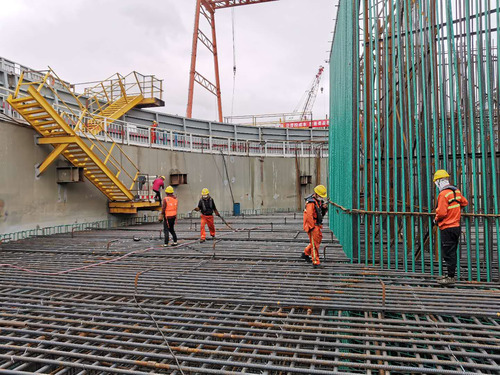NAIROBI, Nov. 25 (Xinhua) -- China's phenomenal post-pandemic economic recovery is an inspiration to African nations and boosts their confidence that they can also thrive after the global pandemic is contained, an analyst has observed.
Beatrice Matiri-Maisori, senior lecturer of international business and trade at Riara University and managing director of a loacal consulting company, made the remarks here in a recent interview with Xinhua.
"We see China recovering, and we see stability. This says that it is doable, even for us in the African countries. So the question is, how do we learn from what China has done to stabilize the situation?" she said.
Looking at China, she noted, African nations must understand their own peculiar situations since one of the factors behind the success of the Asian giant is the understanding of its realities.
"One big lesson Africa can learn from China not only in terms of handling the pandemic, but also the post-pandemic recovery is the use of technology," Matiri said, referring to pseudo robots China used to take temperatures of people, and Global Positioning System sensing to monitor crowded places.
According to her, this is a good example, especially for Africa, where there are many crowded areas and frontline experts have been put at risk.
"Another way involves mobile technology, which China used pretty well in monitoring the movements of people. This has not been very well-practiced in many African countries, but maybe for future," said Matiri.
"China is quite into a lot of digital connectedness particularly on mobile where most of the things happen. This is an area that Africa can learn in terms of high mobile penetration, e-learning, e-entertainment, e-commerce and e-health," said Matiri.
To revive micro, small and medium enterprises, China developed stimulus packages to finance them, which Matiri said can work well in Africa.
"Some African countries like Kenya have done this. They can also offer tax relief for organizations that have helped alleviate suffering during the COVID-19," she said.
She noted that China and African countries can cooperate at various levels. The Forum on China-Africa Cooperation (FOCAC) has identified eight priority areas for their cooperation, ranging from political, people-to-people exchanges, infrastructure and economic recovery to industrial growth.
"One of the priority areas that have been addressed is the infrastructural gap in Africa. China is the single largest financier of projects in Africa in sectors such as roads, ports and railway," the analyst said.
The increasing connectivity is vital for Africa, which helps realize continental free trade.
"This is an opportunity for Africa to exchange products with the Asian world as well as the East European countries with the Belt and Road Initiative acting as a catalyst. In the future, we will see quite a lot of activity around the Indian Ocean region, in terms of not only shipments from the Asian country, but also with growing industrial capacity in African countries," she said.
Matiri observed that for Africa, China's willingness to support the continent comes as an advantage.
"The exchange of African countries with China offers an opportunity to the former to develop their industrial capacity, in terms of value addition of products like leather and textiles," she said.
China, according to Matiri, understands African countries and African development aspirations.
"Africa in 2015 crafted their agenda 2063, which sets the aspirations of Africans in terms of the developments that they want to see. So in terms of talking about China, as Africa's developmental partner, it has done quite a lot in terms of understanding Africa in gaps in investment," said Matiri.
As an investment consultant, Matiri said there are quite a lot of opportunities for Chinese investors in Africa, from light manufacturing to pharmaceutical and health and infrastructure.
"In this time of the COVID-19 when we have seen gaps in terms of supply of the protective clothing used in the health infrastructure and the medicines and the pharmaceutical manufacturing, China can help fill them," she said.
Matiri added that there is a large shift in the manufacturing industry, where Chinese firms are producing products in Africa.
"Quite a lot of Chinese tiles and other products are made in Africa by the Chinese manufacturers. It is a big opportunity for Africa and China to use research that has been done over the years to build industries, move the knowledge from laboratories and our universities to commercialize them," she said. Enditem




 A single purchase
A single purchase









